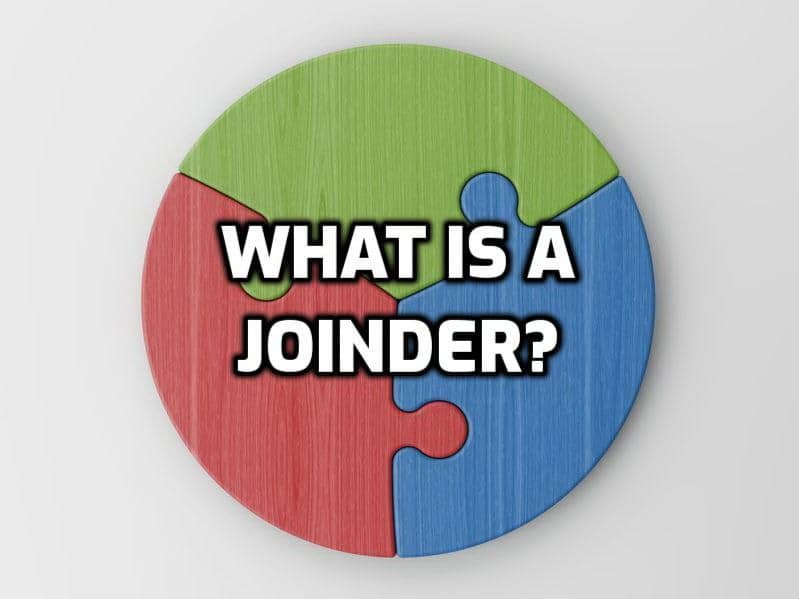Introduction
In the legal landscape, litigation often involves multiple parties with intertwined rights and liabilities. The principle of joinder of parties serves as a fundamental mechanism to ensure that all necessary individuals or entities are included in a lawsuit, thereby facilitating comprehensive justice. Whether in civil or criminal matters, proper joinder can prevent inconsistent judgments, reduce costs, and enhance judicial efficiency.
This article delves into the joinder of parties, exploring its types, rules governing its application in Nigerian law, relevant case law, and strategic considerations for legal practitioners.
Understanding Joinder of Parties
Joinder of parties refers to the procedural rule that allows multiple individuals to be joined as plaintiffs or defendants in a single lawsuit when their claims or defenses arise from the same transaction or occurrence. The purpose of this rule is to avoid a multiplicity of suits and ensure complete resolution of disputes.
Types of Joinder of Parties
Joinder of parties can be categorized into necessary joinder and proper joinder:
- Necessary Joinder:
- This applies when the absence of a party would prevent the court from making an effective judgment or create the risk of inconsistent decisions.
- A party is deemed necessary if their rights are so connected to the case that their non-inclusion would lead to injustice.
- Example: In a land dispute, all co-owners of the property must be joined in the suit to ensure a valid determination of ownership rights.
- Proper Joinder:
- This occurs when parties may be joined together for judicial convenience but are not essential for determining the case.
- Example: If multiple individuals are injured in the same accident and decide to sue the responsible party together, they are proper parties to the suit.
Rules Governing Joinder of Parties in Nigeria
The legal framework for joinder of parties in Nigeria is governed by the Nigerian Rules of Court, specifically the High Court Rules and Civil Procedure Rules of various states. Key provisions include:
1. Order 13 of the Lagos State High Court (Civil Procedure) Rules, 2019
This rule outlines that:
- A party whose presence is necessary for the court to adjudicate effectively must be joined.
- The court has discretion to order joinder even if a party was not originally included.
2. Order 11 of the Federal High Court Rules, 2019
- Allows multiple plaintiffs or defendants to be joined in one suit if their claims or defenses are related.
3. The Supreme Court’s Position on Joinder of Parties
In Green v. Green (1987) 3 NWLR (Pt. 61) 480, the Supreme Court emphasized that non-joinder of a necessary party could render a decision void if their interest was substantial to the case.
Case Law Illustrations on Joinder of Parties
1. Green v. Green (1987)
- Facts: This case involved a dispute over family property, where certain beneficiaries were excluded from the proceedings.
- Ruling: The Supreme Court held that failing to join necessary parties rendered the proceedings defective.
- Lesson: Non-joinder can lead to a miscarriage of justice.
2. Peenok Investments Ltd v. Hotel Presidential Ltd (1983) 4 NCLR 122
- Facts: The defendant argued that a necessary party was missing from the suit.
- Ruling: The Supreme Court ruled that the suit was incomplete without the joinder of the affected party.
3. Amaechi v. INEC (2008) 5 NWLR (Pt. 1080) 227
- Facts: A governorship candidate was excluded from a suit concerning an election dispute.
- Ruling: The Supreme Court held that failure to join a crucial party in an election petition could affect the legitimacy of the outcome.
These cases illustrate that improper joinder—or non-joinder—can significantly affect the outcome of a case and even render a judgment unenforceable.
Strategic Considerations for Legal Practitioners
1. Identifying Necessary and Proper Parties
Before instituting an action, lawyers must analyze whether all affected parties are included. This reduces the risk of defective proceedings.
2. Application for Joinder
A party seeking to be joined in a suit must file a motion on notice supported by an affidavit and a written address stating:
- Their interest in the matter
- How their exclusion will lead to injustice
3. Opposition to Joinder
Where a joinder application is unnecessary, a legal practitioner may oppose it by arguing that:
- The party’s inclusion would delay proceedings unnecessarily.
- The party lacks a direct interest in the case.
4. Effect of Misjoinder or Non-Joinder
The Supreme Court has held in Olujitan v. Oshatoba (1992) 5 NWLR (Pt. 241) 622 that a suit will not be struck out merely because of misjoinder or non-joinder, but courts may order proper joinder to ensure justice.
Challenges Associated with Joinder of Parties
While joinder is a crucial litigation tool, it presents challenges such as:
1. Procedural Delays
Joinder applications often lead to adjournments and prolong litigation.
2. Risk of Conflicting Interests
Multiple parties may have different legal interests, complicating case management.
3. Court Discretion
Judges have wide discretion in granting or refusing joinder applications, which can lead to unpredictable outcomes.
Conclusion
Joinder of parties is an essential component of litigation strategy, ensuring that all relevant individuals or entities are part of the judicial process. Failure to properly join parties can lead to inconsistent judgments, unenforceable rulings, and unnecessary appeals.
Legal practitioners must carefully assess each case to determine when joinder is necessary, apply the correct procedural rules, and anticipate challenges that may arise. By doing so, they can navigate litigation effectively and safeguard their clients’ legal interests.
For more insights into litigation strategies and procedural law, visit CHAMAN Law Firm.


